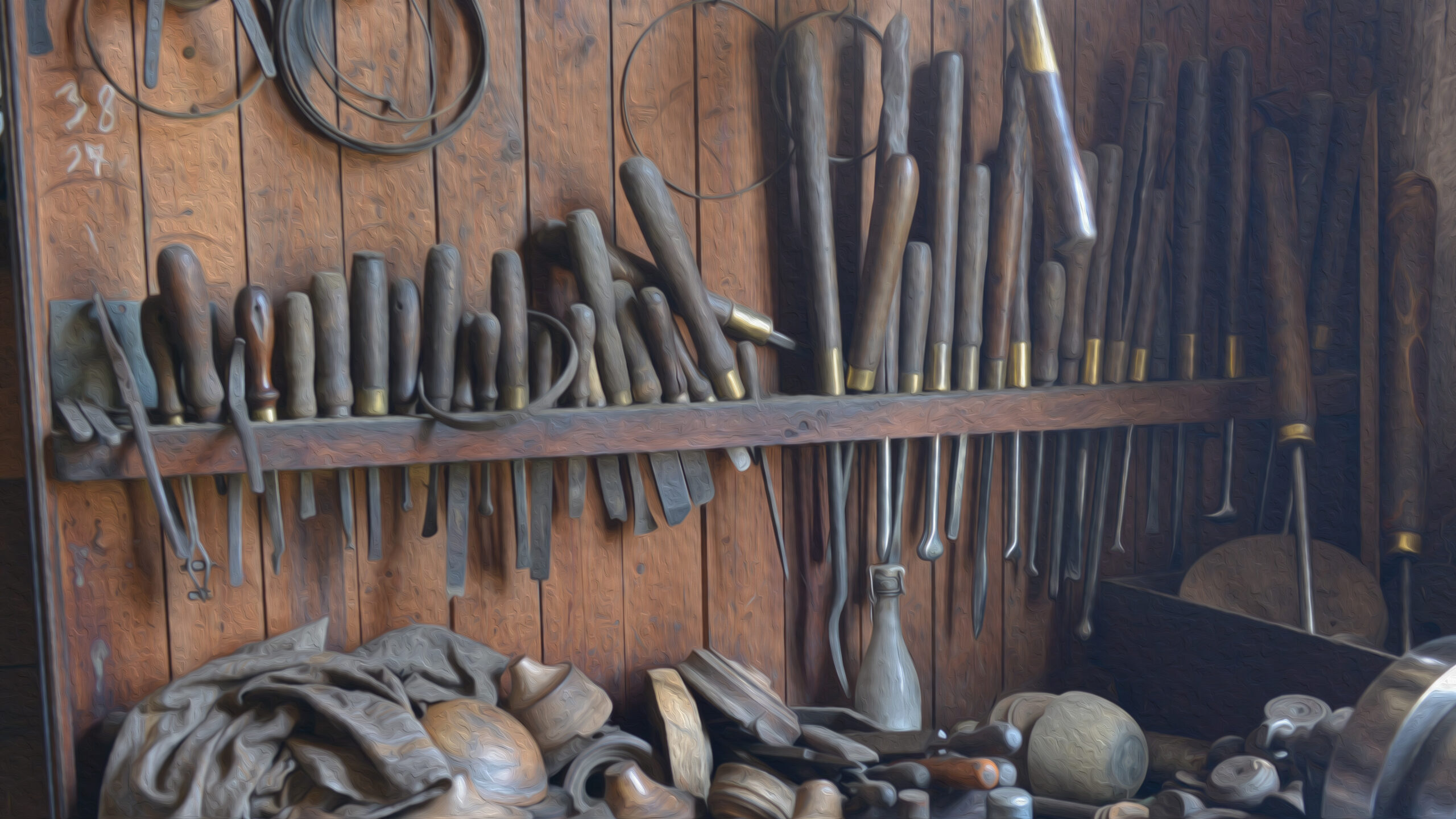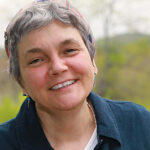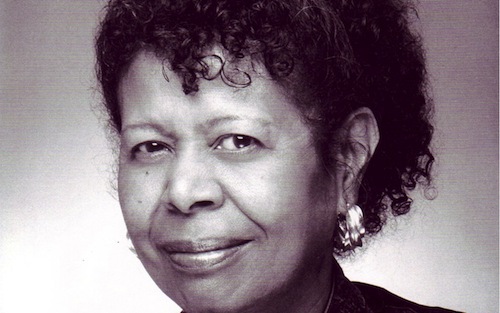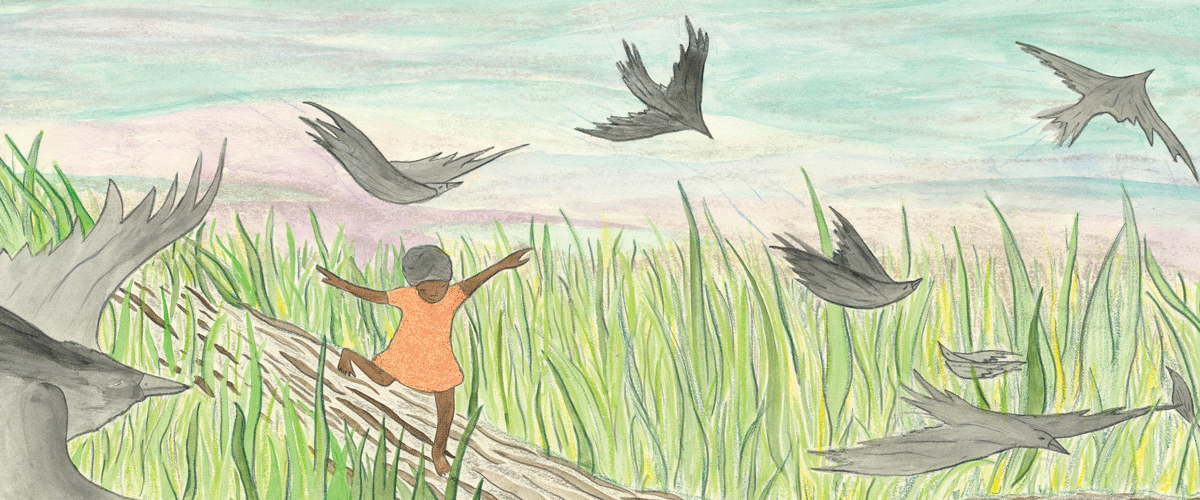Yusef Komenyakaa is the author of Blue Notes: Essays, Interviews, and Commentaries; Dien Cai Dau; and The Chameleon Couch, among many others. Born in 1947 in Bogalusa, Louisiana, he has been awarded the Kingsley Tufts Poetry Award, the Ruth Lilly Poetry Prize, and a Bronze Star for his service in the Vietnam War. He currently lives in New York City, where he teaches at New York University.
Throughout 2015, Teachers & Writers Magazine will publish highlights from Sparks from the Anvil: the Smith College Poetry Interviews, the collection of interviews by teaching artist, filmmaker, and poet Christian McEwen. In this, the second part of a two-part interview, Pulitzer Prize-winner Yusef Komunyakaa discusses war, race, the demands of poetic form, and his daily practice.
Christian McEwen: Your Vietnam book is titled Dien Cai Dau, which means “crazy man,” right?
Yusef Komunyakaa: Crazy.
CM: Because being there was crazy for really everyone.
YK: Also, I think the American GIs were called by the Vietnamese, “luku dien cai dau.”
CM: “Very crazy. Very much crazy.”
YK: Right. But when I heard it, it was not what it meant as much as the language, the sound, the music of the phrase. And then later on I understood what it meant.
CM: You had an amazing description of working on those poems while you were renovating an old house in New Orleans. Every time you got a line in your head, you’d have to descend the ladder in order to write it down. Those poems were written twelve, fourteen years after your experience in Vietnam. Would you talk about that long gestation, and how it was finally to find words for that experience?
YK: Well, I’d been writing poems that I thought came closer to Surrealism. Those were the poems I loved reading as well, especially some of the American Surrealists, but also going back to Breton; some of the Negritude poets, too, Aimé Césaire. I didn’t think my experience in Vietnam would be poetry. I thought I would write an essay or a book of essays about that experience. But working on that house on Piety Street in August, the heat, the dust, and all that—momentarily I was back in Vietnam. I just found myself writing lines down, and before I knew it, I’d written a poem. I’d written three poems, you know! And…I kept writing them.
There are other poems about Vietnam as well, but I told myself that I wouldn’t write about Vietnam any more. I wanted to write about other things, and yet perhaps Vietnam interconnects with those other moments, other times, other histories. Because of growing up in Bogalusa, I wasn’t afraid of the landscape. I embraced the landscape, because it was almost like embracing home, with all the tall grass, animals, and all of that. Nature was very busy, very vibrant, and it embraced my psyche. But at the same time, the opposite of that was true as well. Death was always around the next corner, right? I think if I had grown up in a city, if I had grown up in New York City or Denver or wherever, I would have been very afraid of the landscape, and the landscape itself would have been an enemy.
CM: So the fact that you weren’t afraid of the landscape freed you to see the story differently.
YK: To see it differently, yes.
CM: Clearly one of the things you’ve had to wrestle with as an African American poet is the issue of racism, and you’ve managed to do it without becoming in thrall to what you call “service literature.” Your poems are way larger than that; you’ve managed to tell very uncomfortable, very painful truths without starting always from a place of bitterness.
YK: I think everything is political, language itself is political. Where the problem exists for me is this: when what is spoken destroys the speaker. I have great problems with that, and that can happen in so many ways, in so many degrees. We are finally responsible for what we utter, for what we say and believe. I have always believed that, and perhaps that came from instructions from my grandmothers as well—that I had to be responsible for what I said. I couldn’t just speak out of anger. Not that what I said had to be measured in every way, not that it wasn’t informed with abrupt moments of passion—but perhaps that has also edged into my poetry in some way.
We are finally responsible for what we utter, for what we say and believe.
CM: So the immediate knee-jerk response is not necessarily permitted, or one notices it and does something else, makes it into a dance, or takes on someone else’s voice, or moves on sideways.
YK: Well, it’s interesting, because I wished at times…[that I were writing plays]. I had started reading plays early on; now I’m writing some plays. That probably would have given me a larger canvas, because I love reading plays, I love seeing plays, you know—I love August Wilson, I love Shakespeare, Harold Pinter, there’s so many playwrights that I see as poets. Adrienne Kennedy—it’s amazing what she does with her characters. I really see her as a poet writing plays. It’s interesting when characters come alive and speak, sometimes, just basic unembellished truths. And at the same time another character comes in and says something that is completely out of this world, slightly the opposite way, very embellished, very ornate—and both of those things working side by side.
I wish poems could house those moments as well, side by side, and maybe create a certain tension where the levels of diction shift.
CM: You said somewhere that you didn’t want all the poems in your book to be like a little line-up of paper dolls, each one the exact same kind of poem. I certainly feel your poems have an amazingly wide range of dictions, each of them with equal felicity and authority. So you’re doing it, you’re doing it!
YK: I try to!
CM: Absolutely, my God. In Talking Dirty to the Dogs, or— “to the Gods,” rather. In Talking Dirty to the Gods…
YK: That’s interesting…
CM: Thanks Mr. Freud! I was aware of the ways in which those ancient Greek and Roman myths were intertwined in each of your poems. What did those classical references give you that you couldn’t have achieved without them? Did you ever feel at all hamstrung by them—a little bit too taut with all that high classical reference.
YK: Right, right, right. Well, the structure of those poems—each one is sixteen lines long with four lines per stanza—when I was writing some of those poems, they would actually go beyond the frame, and I would not torture the language but…but…
CM: The carpenter’s son came out.
YK: Right. And I think it had a lot to do with how I was actually writing the poems. Sometimes they’d emerge just complete in sixteen lines, because I was composing some of the poems as I walked to work. It was probably a mile and a half, or two miles, and it was interesting in that way.
This was when I first got to Princeton—I wanted to create a terrain where the high and the low lived side by side within the same frame; where the poems would, I should say, expand. They were tortured—I shouldn’t say “torture,” but they were controlled—and at the same time I wanted them to break out of their unit and expand like those little flowers, those little artificial paper flowers that are dropped into a glass of water and grow out.
CM: You said in Blue Notes that it was difficult for you to write about very private things, but that you were constantly moving closer to that personal terrain. And I guess I felt a greater openness—and maybe one could say integration—in The Chameleon Couch.
YK: I think I had some fun with that book. I like to think I always have fun when I’m writing, and yet I know that isn’t the case. But I was surprised by some of the poems, where they actually went. I was framed, well, by the title, Chameleon Couch. I had that title for some time, and I knew the poems coming under that title would appear different—that’s what I felt. So the title was making some demands on the subject matter, and consequently it created a certain kind of freedom for me. I think that’s what happened. And I like to think about how poems live beside each other, how they reside beside each other to create a certain kind of tension. That there’s a dialogue going on. I think that happens in that book: there’s a kind of dialogue, and the dialogue is sort of surprising. I think so.
CM: You say somewhere, I think in Blue Notes, “I keep a mental notebook,” and “I might write down an image that’s recurred for four, five, six years.” You talk about writing every day. You said just now that when you were at Princeton you would compose those poems on your daily walk. Could you talk a little bit about your work habits?
YK: I attempt to write every day still—at the moment I’m writing plays, I’m writing some essays, poems. I’m working on a very interesting, strange, challenging project for astronauts, with two other librettists. I’m not saying that I am surprising myself, but at moments, yes, I’m still surprising myself. Just thinking about the life of an astronaut is very interesting to me.
How do I go about writing? I still keep notebooks. I also keep many torn out pages, scraps of paper, things of the sort. At one time I wanted to create a kind of visual chaos, where it wasn’t just neatly controlled. I wanted to be able to pick up a sheet of paper from a stack, early in the morning, and finish a poem I thought I would never finish, that I had completely forgotten. That’s a kind of surprise. I still like working that way. I like writing notes in the margins of books and magazines. I’m all over the map, and yet I feel like when I was doing that, I had great control. If someone else looked, they saw complete chaos, but I knew where everything was. And it was strange, I don’t know if I have that today. I don’t think so, I don’t think so…. I suppose it has something to do with time.
CM: Have you gotten more orderly?
YK: Well, maybe out of necessity, because I used to keep my calendar in my head, you know, things like that. I can’t do that any longer. I wish I could. It’s like wearing glasses, right? I’ve tricked myself to believe that I don’t need them—but no, I do.
CM: You say in Blue Notes, “I try to encourage a space into which a reader can come and participate in the meaning.” So you’re giving over some of the power to the reader, him or herself.
YK: What I actually mean by that is: I don’t want the poem to be completely tied up neatly. And a poem can mean many different things, it depends on the reader or the listener, what he or she brings to the poem. And for the poet often it is what he or she can risk discovering. Perhaps for the reader it’s the same thing: what one can risk discovering. I want to write poems that don’t take us on epic journeys, but on some journey that goes within that terrain that’s inside. It doesn’t have to be complicated; it can be very simple. And at the same time that’s what’s needed at that moment.
I like the idea of praising things as well. That’s what I really took from Neruda, I think—his ability to praise things.
…For the poet often it is what he or she can risk discovering. Perhaps for the reader it’s the same thing: what one can risk discovering.
CM: Yes, those marvelous odes.
YK: Yes, yes. And sometimes they’re so simple, and yet they’re not—it depends on how the light slants through the window, what we see.
CM: You say in Blue Notes that you try to convince your students to write about the things that are very close to them—it doesn’t have to be some trip to Italy or Japan—and you emphasize reading and observation. What else do you find yourself saying consistently to your students?
YK: I find myself saying, “Read everything.” And what I mean by that, is that one should read philosophy, one should read science texts. I used to assign Scientific American. At first my students were a little baffled—why Scientific American, right? But we got some wonderful poems sometimes, and sometimes there’s just an image. And also I would say, “Well, this is where terror and beauty communicate.”
I want to write poems that don’t take us on epic journeys, but on some journey that goes within that terrain that’s inside.
I also tell them not to sit by the computer and write. I keep telling them write everything in long-hand if possible, and then use the computer as a tool, because I think technology can sometimes trick us. What I mean by that is that it creates the illusion that the poem is finished. And time should always be part of the equation.
—September 17, 2013
Northampton, Massachusetts
Editor’s Note: This interview has been edited and condensed for space considerations and clarity.
In this video from the Poetry Everywhere project, Komunyakaa reads “Facing It,” from his book Dien Cai Dau.
Featuring several readings by Komunyakaa himself, this Poetry Foundation podcast further discusses the connection between war and poetry in Komunyakaa’s work.
In this video from the magazine Sampsonia Way, Komunyakaa discusses race, class, and the national psyche.
Christian McEwen is a freelance writer and workshop leader originally from the U.K. She is the author of several books, including World Enough & Time: On Creativity and Slowing Down, now in its eighth printing. She edited Jo’s Girls: Tomboy Tales of High Adventure; Sparks from the Anvil: the Smith College Poetry Interviews; and, with Mark Statman, The Alphabet of the Trees: A Guide to Nature Writing. Christian has enjoyed residencies at Yaddo, MacDowell, Mesa Refuge, and the Virginia Center for the Creative Arts, and has received a fellowship in playwriting from the Massachusetts Cultural Council. Her new book, In Praise of Listening, will be published in October.




